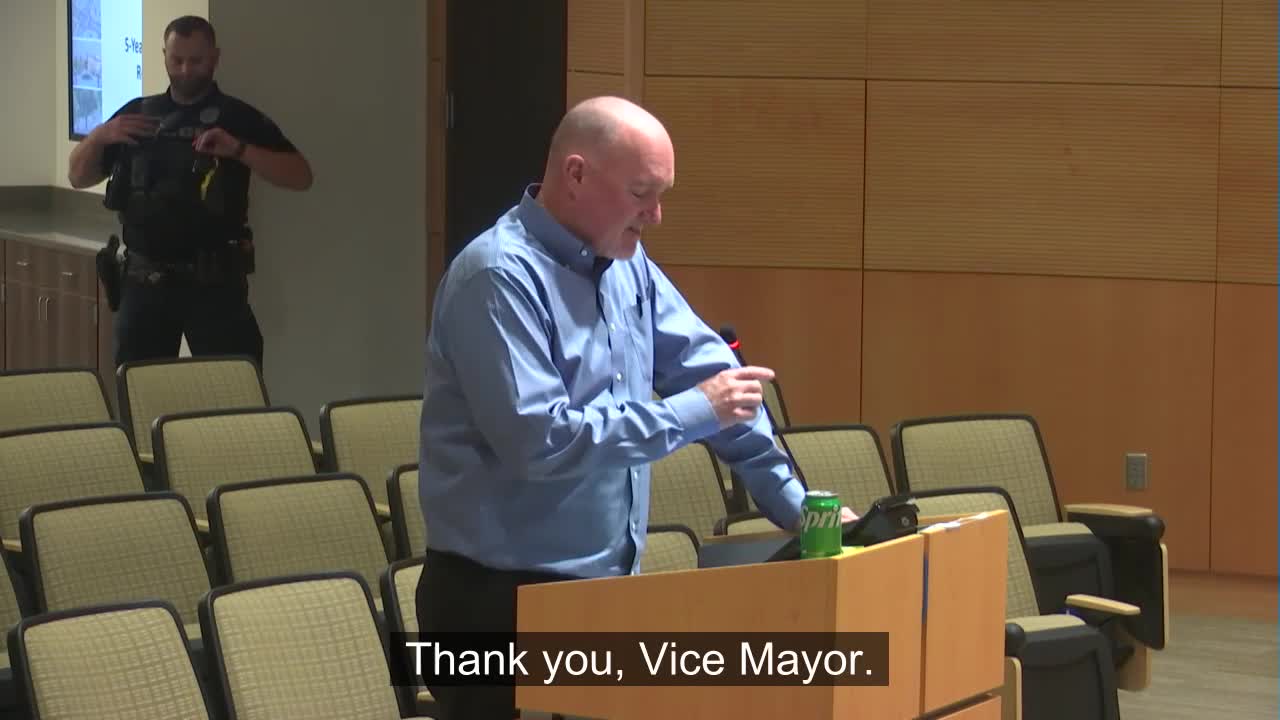Queen Creek projects slower revenue growth for next three years; council approves $18.7M FY2024‑25 budget adjustments
Get AI-powered insights, summaries, and transcripts
Subscribe
Summary
Finance staff told the council that new state tax rules and an assured‑water‑supply restriction on development will reduce expected revenue growth over the next three years. Council approved mid‑year budget adjustments needed to finalize the operating forecast.
Deputy Town Manager and CFO Scott McCarty presented a five‑year operating revenue forecast and asked council to approve FY2024‑25 budget adjustments that reset current‑year revenue assumptions as staff prepare the FY2025‑26 budget.
McCarty framed the forecast around two influences that will reduce near‑term revenue growth: (1) constrained single‑family residential permit activity driven by a requirement tied to assured water supply for new lots, and (2) state tax changes following the 2023 move to a flat income tax that reduced the town’s state‑shared income tax receipts. He said the combined legislative impacts and permit reductions amount to an annual revenue reduction on the order of $4.5 million from prior peak levels.
Why it matters: The town has used strong construction sales tax receipts in recent years to fund recurring services and infrastructure. McCarty told council that without the prior level of one‑time construction revenues and with reduced state shared receipts, the town should expect lower new recurring revenues in the next three years. Staff presented a reoccurring revenue growth figure of about $11.5 million for the coming budget year (down from prior years when $15 million or more of new revenue was available for new services).
Key numbers and assumptions presented: • The town’s fund balance was reported at approximately $153 million at the June close; staff described reserves as strong heading into the budget process. • Inventory of buildable single‑family lots was about 1,800 at the end of the fiscal year; staff estimated roughly 1,800 additional lots become available over the next three years under the modeling assumptions, producing an available pipeline of about 3,600 lots but projected permit issuance of roughly 2,000 lots over the next three years under the assured‑water constraint. • The flat income‑tax change has reduced state‑shared income tax receipts by roughly $3.3 million from the prior peak year.
Sales tax remains the town’s largest recurring revenue source; McCarty said sales‑tax growth, population growth and new businesses continue to support the long‑term outlook, but the immediate effect of the supply constraint and tax changes means staff will be “diligent about the new expenses we add to the base” in the coming budget process. "We do expect lower revenue increases for the next three years as we talked about," McCarty told council.
Council action: Council approved the budget adjustments requested by staff (the record shows a unanimous vote). Councilmembers discussed data requests from McCarty’s presentation, including more detail on large accounts and HOA‑level water and utility usage for parallel conversations about conservation and rate impacts.
Ending: Staff will use the revised revenue baseline to prepare next year’s operating budget and return with more detailed expenditure requests when the manager’s proposed budget is released; council asked for periodic updates as assumptions change.
